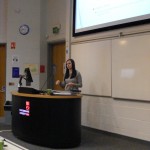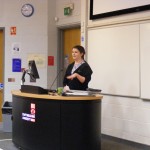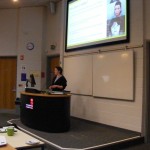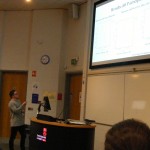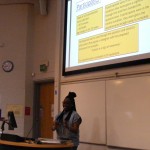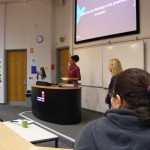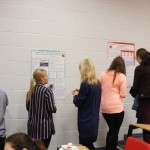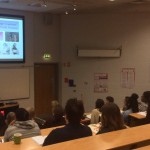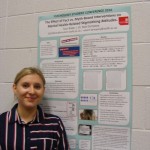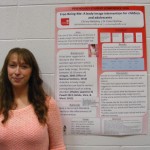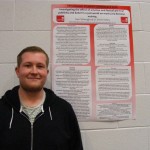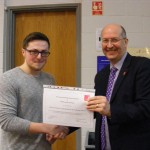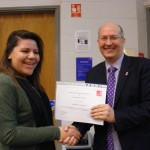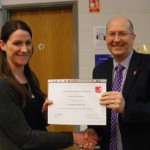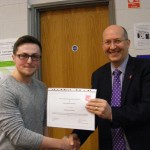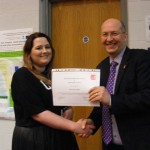We are delighted to announced that the first of our Visiting  Speaker Series of research talks for the 2016/17 academic year will feature a number of short talks by Psychologists based in the Staffordshire Centre for Psychological Research at Staffordshire University.
Speaker Series of research talks for the 2016/17 academic year will feature a number of short talks by Psychologists based in the Staffordshire Centre for Psychological Research at Staffordshire University.
The Centre is home to research activity in the Psychology Department at the University, and is part of the research-active culture in the department incorporting academic staff, postgraduate researchers and PhD students.
The Showcase Seminar takes place on Thursday 22nd September, 4pm-6pm, in the R002 Lecture Theatre located in the Ground Floor of the Science Centre (click here for the location of the Science Centre in the Stoke-on-Trent campus).
| 4pm | Welcome to the Showcase Event |
| Short talks by:
Dr Daniel Jolley: Tin-foil hats and secret plots: What’s the harm with conspiracy theories anyway? Dr Rachel Povey: ‘They said I’m a square for eating them’: Children’s beliefs about eating fruit and vegetables. Dr Justine Drakeford: Do executive problems in Major Depressive Disorder cause temporal order memory deficits? Dr Helen Combes: Q Method: Inter-disciplinary differences in Understanding psychological health. Dr Amy Burton: Being a behavioural scientist in Uganda. Dr Robert Dempsey: Why the Clinical Risk Factor approach may not be sufficient for understanding suicidality in Bipolar Disorder. |
|
| 5:45pm | Professor Karen Rodham |
| 6pm onwards | Discussions and networking opportunities at the Verve Bar, Leek Road Campus, Staffordshire University (short walk from the Science Centre) |
The Showcase Seminar is open to everyone who has an interest in Psychology – including students, staff and members of the public! No need to book, just turn up!
Upcoming Visiting Speaker Talks
The Visiting Speaker Series then continues in the 2016/2017 academic year with talks from invited speakers from across the UK, including:
29/9/2016: Dr Kevin Hochard (University of Chester) discussing the relationship between suicidality and sleep disturbances.
10/11/2016: Stacey Heath (University of Exeter) talking about the relationships between community identification and psychological wellbeing.
For details of the dates and locations of these talks please visit our Visiting Speaker Series pages (click here). Details of further talks will be announced via our @StaffsPsych twitter feed. You can follow the discussions about the Visiting Speaker Series using the #StaffsVSS hashtag.
 The Staffordshire Centre for Psychological Research is home to research activity in the Psychology Department at Staffordshire Centre. The Centre is home to a number of research-active psychologists who are engaged in research across a wide range of psychological subdisciplines. The Centre has two overarching research streams, Health and Behaviour Change, and Applied Perception and Cognition.
The Staffordshire Centre for Psychological Research is home to research activity in the Psychology Department at Staffordshire Centre. The Centre is home to a number of research-active psychologists who are engaged in research across a wide range of psychological subdisciplines. The Centre has two overarching research streams, Health and Behaviour Change, and Applied Perception and Cognition.
The Centre provides training for PhD students, Research Masters degrees, as well as Professional Doctorates in Clinical and Health Psychology (click here for more details). The Centre also provides bespoke training to private and public organisations, as well as expertise for consultancy research opportunities. For more details about the Centre, its research activities, events and consultancy, please visit our website (click here).







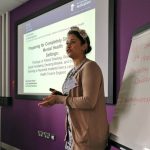







 centre of excellence for teaching and research in Health Psychology, and is home to Staffordshire’s BPS Accredited Stage 1
centre of excellence for teaching and research in Health Psychology, and is home to Staffordshire’s BPS Accredited Stage 1


